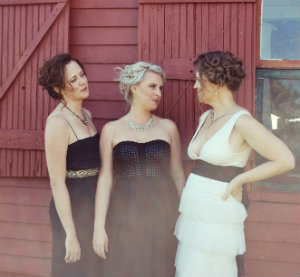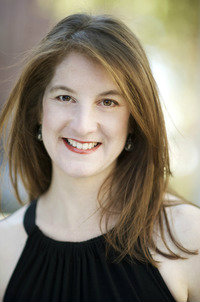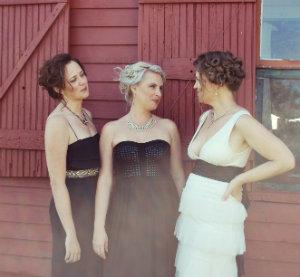
A community of women living in the crosshairs of 17th-century opera and church music created a once-and-forever legacy.
Two performances in the Bay Area, Oct. 30 and Nov. 1, by the Grammy Award-winning San Francisco Girls Chorus and New York-based early music ensemble TENET will feature rarely performed music mostly written by female composers in 17th-century Italian convents. The program will include music by 12th-century German Benedictine abbess, writer, and composer Hildegard von Bingen, anonymous works, and compositions written by men for women cloistered in convents during the baroque era.
“Surprising Freedoms: Music from Behind Convent Walls” is the result of a similar, modern day coming together and synergy of people, societal influences, and musical traditions. As Girls Chorus Artistic Director Lisa Bielawa pondered the best ways to continue offering the girls age 5–18 enrolled in the venerable program the experiences that not only improve their technique but embolden their budding entrepreneurial enthusiasm, her mind turned to collaboration. Plotting with TENET Artistic Director and soprano Jolle Greenleaf, Bielawa says the idea, once found, sprang easily to life. “It happened because I cast nets by thinking about other music-making women it would be fun for the girls to work with. Jolle is an amazing singer and scholar with entrepreneurial energy. She pitched the idea of exploring this community of women and girls.”
Recreating a convent’s all-female vocal environment with the girls chorus and three women from TENET (Greenleaf, soprano Molly Quinn, soprano and mezzo-soprano Virginia Warnken Kelsey), the concert offers multiple surprises.

First off is variety. Contrast and expressive range distinguish the selected repertoire. ”Even taking one, (Chiara Margarita) Cozzolani — we’re doing two pieces that show striking range from just one composer,” says Bielawa. Taken as a whole, the compositions convey joy and a certain liberation, apparent in gorgeous lines written for female voice and text describing the ecstasy of religious life, but also in virtuoso, florid passage work. “There’s evidence of opera in the sacred music,” Bielawa says. “You see it in the chorales but also in the arias where individuals come out and sing about the Lord, their feelings, their stories. It’s showy, when not showing off was more the norm.”
Arguably, the “surprise” — that women in convents would be writing and performing coloratura that’s almost a form of competition — is the result of common stereotypes or lack of knowledge about women’s history. “There’s an assumption that these women were secluded, shut off from society. But it wasn’t that way at all. Actually, the women in a (17th-century) home were less community oriented, more isolated. These works were written for a lively community.”
Bielawa says the work is both well-suited and challenging for the young voices in the choir. To deepen the project’s collaboration, she left much of the selection of composers and specific pieces to Greenleaf, Music Director Valérie Sainte-Agathe, and Justin Montigne, director of voice studies. “Empowering women is something we really care about. Having positive modeling of women and men not just performing at a high level, but collaborating and working with respect for each other is important.”
And in countering what she says are “stubborn gender imbalances” in areas such as composing, conducting, or leading major choruses and orchestras, her ever-roving mind turned to parallels in other fields. “We have input from people who aren’t in the arts through the parents of our chorus members. The most robust parallel area in the Bay Area is tech. The growth of tech programs designed for only girls is increasing. It is an interest we share with tech companies in our city.”
For that reason, a free panel discussion, “The New Girl Network: A look at baroque and contemporary learning communities for women,” will be held prior to the Nov. 1 performance in Berkeley. Featuring women panelists from the music and technology worlds, Bielawa predicts the discussion will be only the first event in an ongoing effort to explore and expand opportunities for young women.

